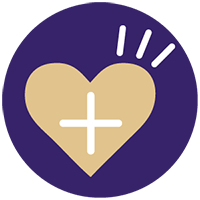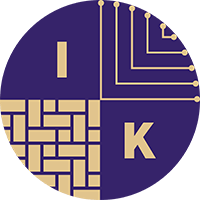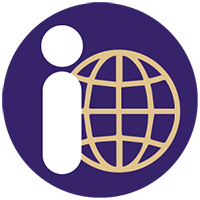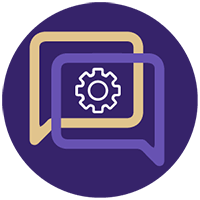Information > Impact
Areas of Excellence
The iSchool is a multidisciplinary school. Our Areas of Excellence are mutually reinforcing existential and pressing concerns. We need libraries, forums, and platforms for the learning, discussion, and civic engagement necessary to a healthy democracy. We need to understand indigenous knowledge for a deeper, inclusive comprehension of our planet and the human condition.. We need to distinguish opinion from fact, to validate the accuracy of information, and establish the integrity of the data and research we rely on to create healthy bodies and healthy communities. All of these concerns are rooted in our interpretation of data, the design of systems and services, and establishing policies that engage, sustain, and give voice to all members of our society. We are compelled to focus on these issues to advance social good and human flourishing for ourselves, our communities, our world, and our future.
Data Science
![]() Advances in data management, machine learning and artificial intelligence are reshaping the economy, science, politics and social life. Data-driven decision-making in business, science, government and civil society motivates research in new techniques and technologies as well as broader areas of data reasoning, data curation, data governance, security and privacy, social networks, data ethics, data cultures, and visualization. At the iSchool, we examine the data pipeline holistically, emphasizing methods, tools and practices for responsible data science.
Advances in data management, machine learning and artificial intelligence are reshaping the economy, science, politics and social life. Data-driven decision-making in business, science, government and civil society motivates research in new techniques and technologies as well as broader areas of data reasoning, data curation, data governance, security and privacy, social networks, data ethics, data cultures, and visualization. At the iSchool, we examine the data pipeline holistically, emphasizing methods, tools and practices for responsible data science.
Digital Youth
![]() iSchool researchers focusing on digital youth explore the transformative potential of new and future technologies in young people’s lives. Drawing on a variety of methods and disciplinary perspectives, our work encompasses topics such as co-designing new technologies, youth well-being, computing education, developing literacies, and learning across contexts. Spanning global contexts, our research addresses the role of digital media and information technologies in relation to access and equity for youth and their communities. As an area of strategic excellence, digital youth is a pillar of strength building from areas like human-computer interaction and co-design research with children in libraries.
iSchool researchers focusing on digital youth explore the transformative potential of new and future technologies in young people’s lives. Drawing on a variety of methods and disciplinary perspectives, our work encompasses topics such as co-designing new technologies, youth well-being, computing education, developing literacies, and learning across contexts. Spanning global contexts, our research addresses the role of digital media and information technologies in relation to access and equity for youth and their communities. As an area of strategic excellence, digital youth is a pillar of strength building from areas like human-computer interaction and co-design research with children in libraries.
Health and Well-Being
 Information School researchers come from across disciplines to research and design information policies, technologies, and processes that improve people’s health and environmental resilience, leading to a healthier and safer society. Our research impacts everyday people, their healthcare providers, libraries, and technology. Research on health and wellbeing informs society in many ways. We work to eliminate systemic racism and bias in the delivery of these health services and to improve equity among marginalized groups including Native and Indigenous communities, people with disabilities, neurodiverse people, and those experiencing mental illness. Health and well-being research at the iSchool is grounded in the principles defined by the University of Washington Population Health Initiative, which is driven by our public service mission.
Information School researchers come from across disciplines to research and design information policies, technologies, and processes that improve people’s health and environmental resilience, leading to a healthier and safer society. Our research impacts everyday people, their healthcare providers, libraries, and technology. Research on health and wellbeing informs society in many ways. We work to eliminate systemic racism and bias in the delivery of these health services and to improve equity among marginalized groups including Native and Indigenous communities, people with disabilities, neurodiverse people, and those experiencing mental illness. Health and well-being research at the iSchool is grounded in the principles defined by the University of Washington Population Health Initiative, which is driven by our public service mission.
Human-Computer Interaction
![]() The iSchool is home to a world-renowned faculty that investigates, innovates, designs, and builds technologies and digital experiences from the perspectives of human values, access, learning, health, wellness, and life. We lead the field in ability-based design, co-design, data-driven design, patient-centered design, and value sensitive design. Our work engages children and families, patients and clinicians, young people and educators, survivors and international justice organizations, among others. In so doing, we seek to improve human well-being and ensure equitable access to information and digital experiences.
The iSchool is home to a world-renowned faculty that investigates, innovates, designs, and builds technologies and digital experiences from the perspectives of human values, access, learning, health, wellness, and life. We lead the field in ability-based design, co-design, data-driven design, patient-centered design, and value sensitive design. Our work engages children and families, patients and clinicians, young people and educators, survivors and international justice organizations, among others. In so doing, we seek to improve human well-being and ensure equitable access to information and digital experiences.
Indigenous Knowledge
 Indigenous knowledge research at the iSchool recognizes the value of relationship building and research ethics within Indigenous communities. Through the application of various research methods, including the co-creation model of inquiry and community based participatory research, researchers come from across disciplines to explore the intersections of information, knowledge, technology, and the needs of Native communities. With a focus on supporting Tribal sovereignty through water security, tribal libraries, and Indigenous curation, our research has practical implications, such as examining the impact of digital technologies on Indigenous knowledge systems, exploring decision making by Tribal stakeholders, and examining the protection, preservation, and use of Indigenous knowledge in Native communities and by information institutions.
Indigenous knowledge research at the iSchool recognizes the value of relationship building and research ethics within Indigenous communities. Through the application of various research methods, including the co-creation model of inquiry and community based participatory research, researchers come from across disciplines to explore the intersections of information, knowledge, technology, and the needs of Native communities. With a focus on supporting Tribal sovereignty through water security, tribal libraries, and Indigenous curation, our research has practical implications, such as examining the impact of digital technologies on Indigenous knowledge systems, exploring decision making by Tribal stakeholders, and examining the protection, preservation, and use of Indigenous knowledge in Native communities and by information institutions.
Information and Society
 How can we do ethical computing research? What practices should govern the management of data about vulnerable refugees? How do information infrastructures contribute to the production of unequal or unjust societies? In the “Information and Society” research area at the iSchool, we ask questions about the practices, discourses, and institutions which make information, data, and digital technology meaningful. Using a sociotechnical lens and humanistic, participatory, and qualitative research approaches, we work to understand how data, information, and ICTs (Information and Communications Technologies) are co-constructed within and across peoples, communities, and societies. Accordingly, we investigate a range of complex phenomena from development, marginalization, and risk to disaster, design, and education with specific attention to questions of justice, personal well-being, epistemic cultures, privacy, and intellectual property.
How can we do ethical computing research? What practices should govern the management of data about vulnerable refugees? How do information infrastructures contribute to the production of unequal or unjust societies? In the “Information and Society” research area at the iSchool, we ask questions about the practices, discourses, and institutions which make information, data, and digital technology meaningful. Using a sociotechnical lens and humanistic, participatory, and qualitative research approaches, we work to understand how data, information, and ICTs (Information and Communications Technologies) are co-constructed within and across peoples, communities, and societies. Accordingly, we investigate a range of complex phenomena from development, marginalization, and risk to disaster, design, and education with specific attention to questions of justice, personal well-being, epistemic cultures, privacy, and intellectual property.
Learning Sciences
 Researchers at the iSchool involved in the learning sciences advance knowledge of the learning process and the design of innovative learning environments and technologies. Through an interdisciplinary connection between human-computer interaction, education, and library and information sciences, our work focuses on how technologies shape, and are being shaped, by learning and collaboration in a variety of real-world settings, such as classrooms, libraries and museums, peer and family contexts, and online communities.
Researchers at the iSchool involved in the learning sciences advance knowledge of the learning process and the design of innovative learning environments and technologies. Through an interdisciplinary connection between human-computer interaction, education, and library and information sciences, our work focuses on how technologies shape, and are being shaped, by learning and collaboration in a variety of real-world settings, such as classrooms, libraries and museums, peer and family contexts, and online communities.
Library and Information Science
![]() The iSchool’s research in Library and Information Science (LIS) is diverse in the methods, topics, and technologies used by individual faculty members, but we are united by a collective goal to advance societal understanding of the impact that information services and systems have on all people’s pursuit of knowledge, self-expression, and civic engagement. We contribute novel research to LIS fields such as public librarianship, knowledge organization, archival studies, data and software curation, children’s literature and youth services, digital literacy, and the digital humanities. LIS faculty are individually and collectively dedicated to pursuing these topics through a lens of justice, equity, and inclusivity.
The iSchool’s research in Library and Information Science (LIS) is diverse in the methods, topics, and technologies used by individual faculty members, but we are united by a collective goal to advance societal understanding of the impact that information services and systems have on all people’s pursuit of knowledge, self-expression, and civic engagement. We contribute novel research to LIS fields such as public librarianship, knowledge organization, archival studies, data and software curation, children’s literature and youth services, digital literacy, and the digital humanities. LIS faculty are individually and collectively dedicated to pursuing these topics through a lens of justice, equity, and inclusivity.
Sociotechnical Information Systems
 iSchool faculty engaged in sociotechnical information systems research investigate a wide range of topics concerning the interaction between social systems and digital technological systems. Some faculty study how organizations design, develop and use information technology to advance strategy and serve society. Others focus on how individual users use information technologies and assets to meet individual needs and carry out social movements to change society. In all cases, we apply a critical lens to also investigate how the technologies we develop and use affect our social norms, structures and culture.
iSchool faculty engaged in sociotechnical information systems research investigate a wide range of topics concerning the interaction between social systems and digital technological systems. Some faculty study how organizations design, develop and use information technology to advance strategy and serve society. Others focus on how individual users use information technologies and assets to meet individual needs and carry out social movements to change society. In all cases, we apply a critical lens to also investigate how the technologies we develop and use affect our social norms, structures and culture.
